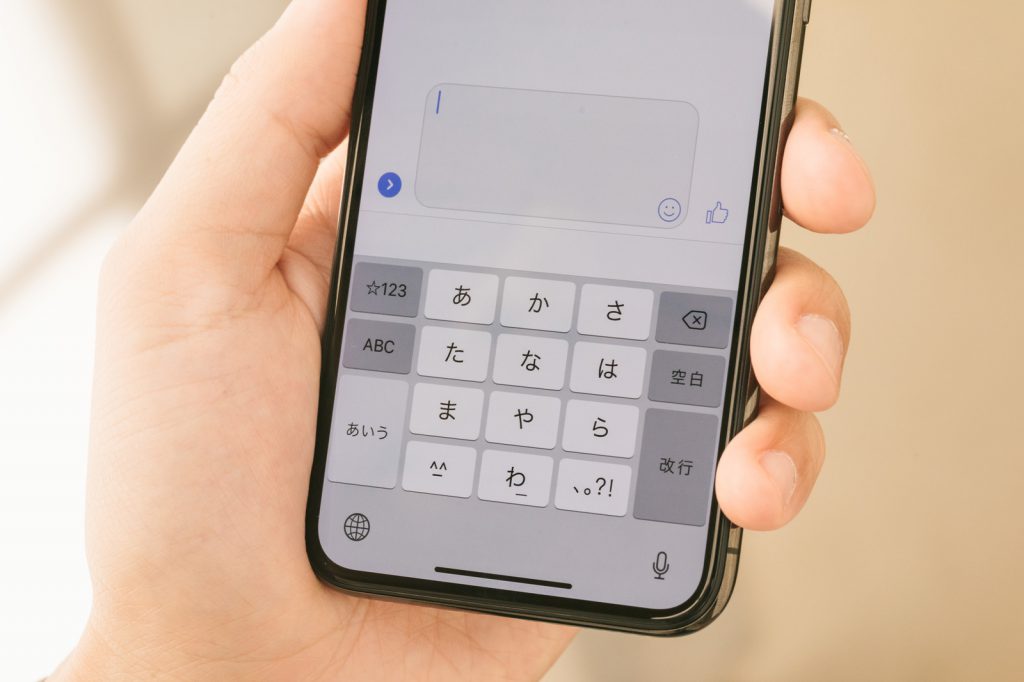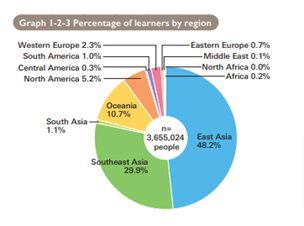Blog
2021.07.26
Japanese language
5 Interesting Facts about the Japanese Language
In this article, we present you 5 interesting facts about the Japanese language that might even be new to native speakers.

1. Japanese is the eight most spoken Language in the World
Around 130 million people speak Japanese, which corresponds to 1,662% of the world population. It is the most space-concentrated of all the most-spoken languages, with a vast majority of its speakers living exclusively on the island of Japan. Before and during World War II, due to the Japanese annexation of Taiwan and Korea, as well as partial occupation of China, the Philippines, and various Pacific islands, locals in those countries were asked to learn Japanese. As a result, many elderly people in those countries can still speak Japanese.
2. Japanese bears no Relation to any other major Language
Unlike English, which is closely tied to Romance (e.g., Spanish, French) and Germanic languages (e.g., German), Japanese is not closely related to any other major language. In fact, it is classified as a language isolate, meaning that it is completely unique among all current world languages. There are many theories that try to link Japanese to other Asian languages like Korean or Austronesian languages. But none of them has gained wide acceptance so far. Japanese being a language isolate might be one reason why it is difficult for non-Japanese natives to learn the language and for Japanese natives to learn foreign languages.
3. International interest in Japanese started to increase in 1980s
Two main factors that helped to increase the international interest in Japanese were the economic bubble in Japan in the 1980s and the global popularity of Japanese popular culture like Anime and Video Games since the 1990s.

Anime and Games are quite popular in Germany, too. A lot of the famous series are broadcast on German TV in a dubbed version and most Japanese Video games also are released in Germany. The number of Japanese languages learners in Germany increased by about 8% from 2012 to 2015 to 14.393 people. However German learners only make for a small portion of worldwide Japanese learners. The majority of learners can be found in East Asia and Southeast Asia.

Percentage of Japanese learners by region in 2015 (Graph from the Japan Foundation, Ssurvey Report on Japanese-language Education abroad 2015, pg. 10)
4. Japanese is one of the most fast-paced spoken Languages in the World
In 2011 a group of French linguists conducted a study and tackled the task of measuring average language speed. Japanese has a spoken syllable rate of nearly eight syllables per second. That is faster than Spanish, French and Italian. However, there are other interesting takeaways from the study as well.
While Japanese has the fastest spoken rate, it also has the lowest amount of information density per syllable. That might be due to the Japanese honorific language that uses a lot of words with many syllables that not necessarily carry a lot of information.
5. Romanization of Japanese Words started in the 16th Century
The romanization of Japanese began in the 16th century with the arrival of the first Portuguese traders and priests. However, as Japan reduced contact with the West from 1639 to 1858, romaji fell out of use. It was not until the late 19th century and further Western intrusion and influence starting with Commodore Perry who forced the Shogun to sign a peace treaty and establish diplomatic relations between Japan and the United States when romaji became important again. There are several systems for romanization. The most widely used one is the Hepburn Romanization that was published in 1867 by American missionary James Curtis Hepburn.
We hope you found some of these facts interesting and learned something new. We can also recommend this article that provides a short introduction in the history of Japanese. The translators at transeuro also constantly keep learning and improving their skills to provide even better translations. If you are interested in translation from Japanese to English or from Japanese to German, please feel free to contact us.
Similar Posts
[jetpack-related-posts]



Leave a Reply